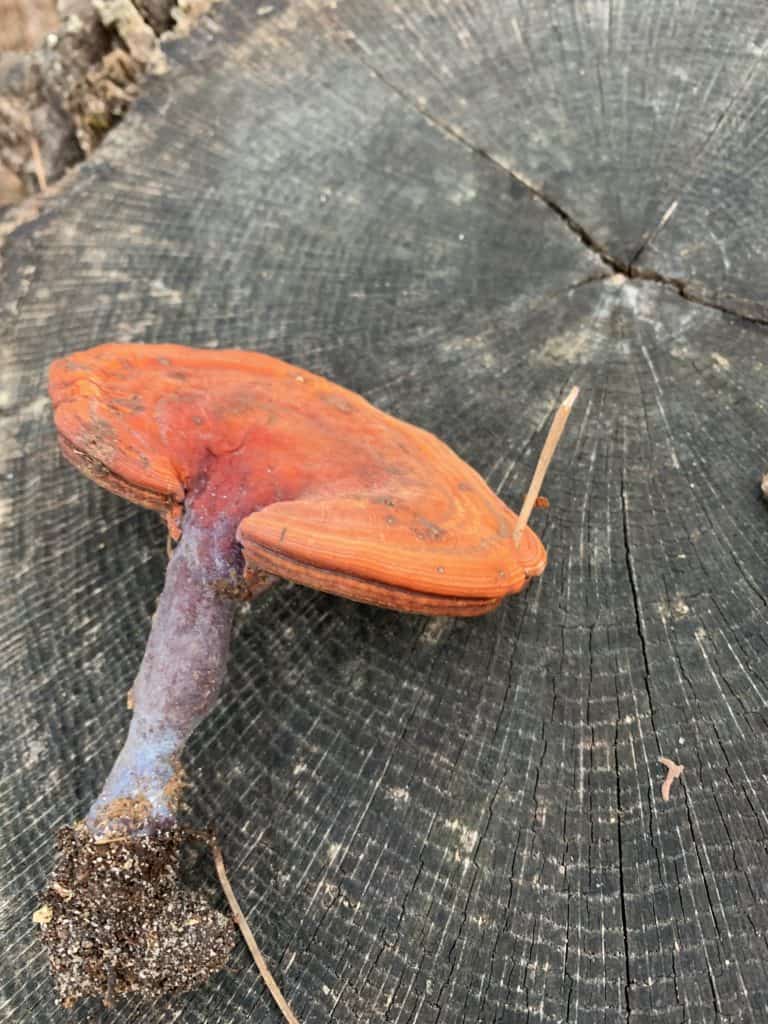Gardening for Health

Eat Reishi for Better Health
By Maria Price
Mushrooms can do more than flavor your meals. They have long been touted in traditional Chinese medicine for their nutritional and medicinal benefits.
Medicinal mushrooms include reishi, maitake, shitake, turkey tail, cordyceps and chaga. They improve your immune function by challenging it with complex starches known as polysaccharides, including glucans, that your body perceives as a threat so your body mounts an immune system response to them. These glucans give your immune system a training run which may improve the function of a range of immune cells and pathways, helping to reduce allergies and autoimmune disease. Your smarter immune cells become more adept at fending off true pathogens like the common cold.
Reishi or Ganoderma lucidum is a medicinal mushroom that has nutritional benefits and can enhance the immune system. This burnt-orange shelf mushroom grows on hardwood stumps of oak, elm, beech, maple, plum and more, and usually found on tree stumps that have been recently cut. A related species, Ganoderma tsugae, the hemlock varnish mushroom, seems to prefer conifers, mainly hemlocks.
The fruiting bodies of these polypores are kidney or fan-shaped and reddish in color, with a wet, lacquered appearance when young. In the fall, look for these native mushrooms in damp, dark forests or on rotting logs.
Reishi strengthens the immune response, which makes it useful for preventing illness, balancing autoimmune and allergic conditions and potentially fighting diseases such as cancer. Reishi also contains compounds that strengthen lung structure and function and improve oxygen utilization which helps those prone to asthma, bronchitis and pneumonia. Reishi is also considered a heart tonic and improves blood flow to the heart.
Medicinal mushrooms should always be cooked. Reishi should be simmered for a few hours to make broth, teas or decoction tinctures. The dried mushroom powder can be added to soups, broth or stews. You can also take prepared capsules daily.
Reishi is generally considered safe, although some people are allergic to them. Avoid eating mushrooms raw; cooking makes the beneficial starches more digestible and usable to the body and inactivates potential toxins. I harvest mature reishi in my woods in the winter. Always confirm identification with at least two or three field guides or mushroom experts.
